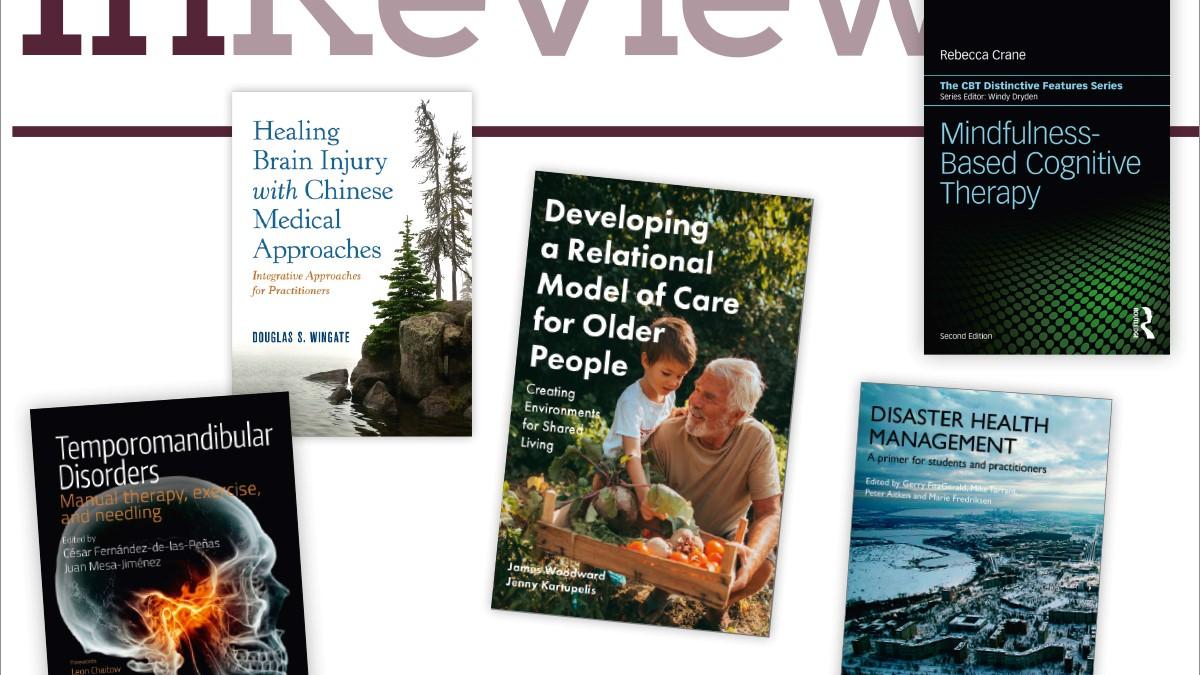Our featured book 'Mindfulness-Based Cognitive Therapy' is an approach to psychotherapy that was originally created as a relapse-prevention treatment for depression... Read more here...

Mindfulness-Based Cognitive Therapy Rebecca Crane Routledge ISBN 9781138643222
This is a concise, informative book designed to offer an overview of mindfulness-based cognitive therapy (MBCT). It is also a reference book and a resource for useful practice tools. In two distinct sections, the first covering theoretical features of MBCT, the second practical features, it contains adequate information to readers looking for insight into both, without overloading them with either aspect.
Section one is divided into 15 chapters and begins with a discussion about integrating mindfulness-based stress reduction with cognitive behavioural therapy. With a fairly good explanation of the origins and purpose of mindfulness-based stress reduction, the book firmly places the use of the technique into practice, as well as offering insight into the theories underpinning MBCT and its use in conditions such as depression. The remainder of the section discusses the philosophical and theoretical aspects of MBCT, and its origins, for those who would like to learn more.
Section two is distinctly different in that its further 15 chapters centre on the practicalities of MBCT use and instruction, together with practical examples. In ‘Course content and structure’, the novice is given tips to get started and strategies for a number of patient scenarios, including hints on ways to embed the practice.
While more in-depth theoretical and practical books may be available, this text allows the reader to gain a decent amount of knowledge quickly to use immediately. Additionally, it may whet the appetite – increasing the reader’s curiosity about the subject – and provides resources to find out more.
I regard this as a useful text in the armoury, while accepting that for more in-depth knowledge and theory, other books may be more suitable. However, for those taking their first steps in to the use of mindfulness-based therapies, this is an important read.
- Dr Paul Cameron, National Lead Clinician (Acting) - Chronic Pain, National Advisory Committee and Specialty Advisor to Chief Medical Officer, Scottish Government
Temporomandibular Disorders Edited by César Fernándes de las Peñas, Juan Mesa-Jiménez Handspring Publishing ISBN 9781909141803
A thorough, authoritative text that advocates clinical and evidence-informed practice, an approach that acknowledges the value of clinician experience and expertise as well as research findings. Edited by two highly regarded practitioners and researchers, with contributions from 28 clinicians/researchers worldwide.
Healing Brain Injury with Chinese Medical Approaches Douglas S Wingate Singing Dragon ISBN 978184819194021
A clinical guide to treating minor and acute brain injury offering clear instruction for acupuncturists and other practitioners of traditional Chinese medicine. This substantial book explains how symptoms such as headache, dizziness, pain and anxiety relate to brain injury and approaches to treatment.
Developing a Relational Model of Care for Older People James Woodward and Jenny Kartupelis ISBN 9781785923340
It’s not a catchy title (and subtitle, Creating Environments for Shared Living) but the aim is clear. It lays out a vision for a fresh approach to creating care homes that older people might want to live in, and even enjoy, by focusing on humanity, individuality and inter-relationships.
Disaster Health Management Gerry FitzGerald et al Routledge ISBN 9781138911185
In light of the hundreds of disasters that occur globally – natural and manmade – this book proposes the basis of a ‘language’ to underpin the actions of those involved in the relief effort, for the benefit of communities affected, but primarily first responders. It includes case studies on volcanic eruption, tsunami, earthquake and ebola.
Author
Frontline and variousNumber of subscribers: 1
